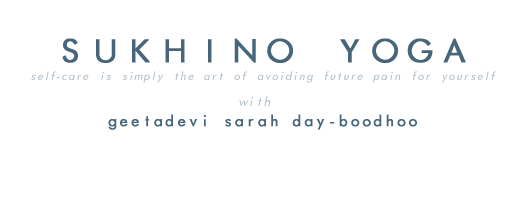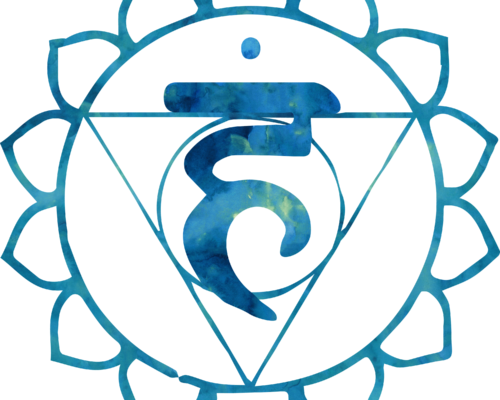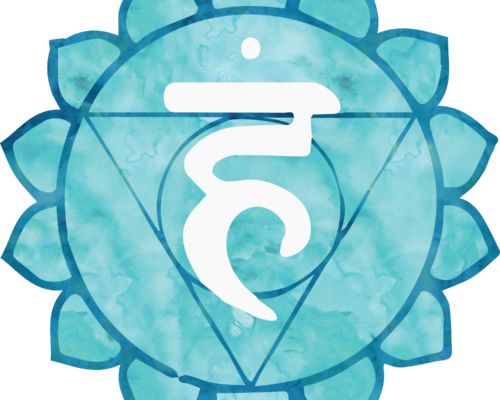Today begins Day 1 of a 3-day New Moon Fast for me. I picked up this ritual in August last year and have quickly come to not only love it, but to look forward to it as soon as I begin refueling from the last one. It’s been an illuminating journey which teaches me something new with each fast.
Intermittent fasting is so full of benefits, but it’s also something to approach with caution, patience, a solid understanding of your (true) objective and lack of attachment, as not only can it be highly beneficial, there can also be risks if you’re not careful.
A few of the benefits I’ve fallen in love with and my body nows craves (I’ll expand on these below):
- purifies the body and can be a part of the yogic practice
- being free from the whims of my tastebuds
- total gut reset – no bloating, no discomfort
- the body running at its optimum efficiency; while fasting, my asana practice (postures) are smoother and deeper. I find I’m able to attain challenging poses such as handstand with reduced effort and more grace
- a balance of emotions; I find it nearly impossible to feel overly tossed about by my emotions while I’m fasting
- when in an extended fast, my emotional base becomes that of euphoria; with no ups or downs – just pure euphoric even-steven.
- the absolute joy that happens a few hours before I re-fuel. Around this time, I begin to feel giddy at the prospect of re-fueling, not hungry and agitated, but giddy like a kid anticipating a present.
Now, as mentioned, there are also risks. I am not a medical doctor, I teach yoga, and this blog is purely my experience that I’m excited to share. You will want to make sure to do your best to keep yourself safe if you decide to incorporate fasting into your life. Some areas in which I am familiar, if you have (or had) trouble with body image, you should probably refrain from intermittent fasting. Those who have had, who are underweight or struggling with weight gain, those under 18, those who have had bariatric surgery, have diabetes, blood sugar issues or anyone who is pregnant and/or breastfeeding should also refrain from fasting and/or seek guidance from a health care professional before beginning any fasting routine. If you fall into any of these categories or are concerned about if it is safe for you, please check with your doctor, nutritionist, Ayurvedic doctor, therapist, etc and make sure your safety is priority.
With that, some of the challenges of intermittent I have experienced are:
- feeling hungry
- headaches
- light headed
- disrupted sleep
- fasting breath. it’s not nice. the fam’ says my breath smells antiseptic, like rubbing alcohol, lol!
With each fast, I might experience one or more of the challenges, or none of them (except the breath thing, with any extended fast, the breath thing always happens). There are so many variables to the success of a fast, which is why patience is so vital in starting this practice.
I began intermittent fasting as a way to purify my body, and it’s a practice I incorporated into my life sometime in 2016. I honestly didn’t quite fully understand what ‘purifying’ my body meant at the time, but I heard the phrase regularly in the yoga community and it seemed like something I should want. Now I understand that it gives the gut a break, and purifies the body from nutrients it can’t digest or is having a hard time breaking down. It also gives our mental & emotional body’s a break from thinking about food (which on a normal fueling day for me, is all the time. I could never quantify how many frustrated moments I’ve helmed all because of my gut or tastebuds were dissatisfied). This is all a part of purifying the body.
In reading: Inside the Yoga Sutras; A Comprehensive Sourcebook for The Study and Practice of Patanjali’s Yoga sutras by Reverend Jaganath Carrera; Guruji approaches fasting in Sutra 2.1: Accepting pain as help for purification, study and surrender to the Supreme Being constitute Yoga in Practice:
sutra 2.1, page 99: (Tapas: the acceptance of challenges as help for purification – part 1 of a 3 part synergistic relationship in Kriya Yoga). Tapas is not simply a patient, if unsettling wait for painful events to come along so that they can be accepted. It can also be a voluntary act of will, a choice to embark knowingly on a path that might bring discomfort and challenge before producing its benefits. Fasting is an example of voluntary practice of tapas. Some yogis willingly accept the discomfort of hunger one day a week as a help in purifying the body and strengthening the mind.
Many of us have had an experience that really sucked or was absolutely painful, only to see ‘benefit’ of what came from that experience. For example, a broken heart from a severed relationship leading to then finding ‘Mr. or Mrs. Right’, a job loss leading to a better job or new career path, a financial hardship that inspired new healthier behaviors towards money that leads to greater wealth and so on. While we can observe these spontaneous moments I arrears and still reap the benefit, we can also create a controlled, intentional, uncomfortable and difficult environment with the intent of reaching those vary same benefits on purpose. It is often the challenges in life that make us stronger, and this is absolutely true for an intermittent fasting program.
Once in the ‘fasting zone’ the body simply stops thinking about food. No more standing in the kitchen wondering what to snack on. No more staring at the fridge debating what to eat. No more exhaustion at what to make for dinner for a family of varying dinner opinions and preferences. No more having to stop what you’re doing to go and fetch that sweet/salty snack. No more feeling unfocused on the task at hand ’cause you’re watching the clock to indicate it’s time for lunch. Simply put, once in the ‘zone’, food just isn’t on the mind.
Total.Gut.Reset. What more can I say. This alone is totally worth it for me. But, you do need to watch how you refuel, or you’ll find you went from feeling great in the gut to feeling like a cramping bloated mess. I’ll cover more on refueling a little later.
When the body runs at its most efficient, it’s a feeling like none other. When we reach this feeling, we also begin to realize just how much of our entire life experience is governed by our gut & tastebuds. This optimization then ignites a sense of peace, contentment or even euphoria; all which can accompany an extended fast. When you feel so steady and focused, it’s hard to feel frustrated by anything.
Some of what happens to the physical body during extended fasting: ketosis (12 hours) – the body is being to break down and burn fat, heavy ketosis (18 hours) – switched from fat-burning mode and are generating significant ketones (ketones are used as fuel to drive the body’s metabolism and to support muscle function), autophagy (24 hours) – cells now recycling old components and breaking down misfiled proteins linked to Alzheimer’s and other diseases, peak GH (48 hours) – growth hormone increases, minimum insulin (54 hours) – body becomes more insulin-sensitive, immune cells (72 hours) – breaking down old immune cells and generating new ones (read: The Five Stages of Intermittent Fasting, Life Apps; May 18 2020).
And as noted, with fasting, you might and likely will, experience challenges. And the challenges are great! cause this is where you really get to know and become true friends with your body, your habits, your attachments & aversions. I have found almost every challenge in a fast has been brought on by either:
- trying for too many hours too quickly. GO SLOW! Start with 12-hours. When you notice you don’t stare at the clock when it’s time to refuel, then maybe try 13-hours and so on; even if it takes years (it did for me – I’ve been at this for 6-7 years now, and only this year went from 24-hour fasting to 40-hour fasting on Mondays and 72-hour New Moon fast once per month starting 6-months ago. There’s no heroes in fasting, just you & your wellness).
- dehydration – drink up! Start a day or two before and make sure you are well hydrated (and no alcohol leading up to the fast, either, as it’s very dehydrating).
- low blood sugar – I’m observe a purely plant based diet and this seems to be a thing for vegans. The days before a fast, I avoid or greatly reduce ‘added sugars’ (I don’t seem to have an issue with stevia) and focus on long-lasting whole and/or ancient grains such as quinoa or bulgur, avoiding the more simple carbs like rice & white flour.
- time of year – cause c’mon. fasting over the holidays sucks. Be kind to yourself 🙂
And please note, these are my experiences. You may experience any of these too, or something entirely different. The point in trying this practice is to get to know your body. Observe it with love and patience like you would your bestie and you might just cultivate a truly loving and beautiful relationship.
Now, for refueling. I find that my body really knows what it needs at this time. Listen to your body – truly listen. See if it lights up at the idea of certain foods, and you’ll likely find you’re drawn to the nutrients your body is needing. Start with fruit or a light broth (vegetable – not meat). Add cooked veggies and later raw veggies & greens (if your gut is normally ok with raw, that is. if not, add these when you’d add meat). Once your tummy has accepted those items, then you can move onto grains – but keep these whole and low in portion size. Once you’re comfortably eating grains, then if dairy & meat are part of your thing – nows the time. Also to note, avoid supplements both during your fast and upon refueling. Your gut will hate you if you do use supplements during this time. Slowly re-introduce your gut to your supplements one a day after your fast and observe how your stomach accepts them as these can be very hard to digest and overwhelming to your now purified system.
Lastly, why I fast over the New Moon. Before I go there, I’ll share with you my practice; I start 24-hours before the New Moon and break-fast 48-hours after. I do this as I’ve watched my own system over the years and how it responds to the lunar cycles. I’ve found that for me, I am more at ease during the New Moon and more active & restless during the Full Moon. This is a common way for many people, but I enourage you to keep a journal and observe the moon & your tendencies for yourself. Keeping a journal for this is super easy; simply note the stage of the moon (there are many apps that you can use to easily find this info) and then note your emotional/mental state, ie: feeling restless/at ease/quiet/sad/argumentative etc. After a couple of months, you’ll likely notice a pattern.
But back to extended fasting on the New Moon. I use the natural energy I experience during the New Moon and combine it with fasting in effort to amplify all the benefits I mentioned above. When my thoughts & emotions are not being tossed about by my fixation with food, when I’m not irritable because my gut is, when I feel more at ease and graceful in my body, I am better able to harness the easeful feeling I get during the New Moon. I then use this energy to set my intentions for the next month, I dive deeper into my meditation and asana practice – where I’m more likely to get into the ‘meditative zone’ than I am during any other time of the month. And I use this time to listen to my Higher Self to ensure that what I am engaged in is supporting my dharma; my purpose.
It truly is a total reset for the physical, emotional, intellectual & mental bodies. The practice is both dynamic and subtle and has something new to offer with every fast. Though it is absoutlely not a requirement to practice fasting in order to be on the yogic path, it is just one of many ways in which to add to the yogic journey.
Happy New Moon & Fasting!




